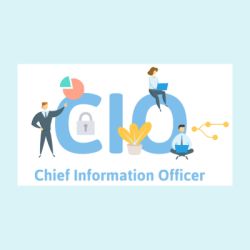Over the past few years, the U.S. healthcare system has faced significant challenges, including those brought on by the COVID-19 pandemic, such as financial strains, supply chain disruptions, staffing shortages, and limitations on clinical services. These issues, compounded by inflation-related economic concerns, have deeply affected both healthcare workers and hospital leaders. A recent study published in the Journal of Healthcare Management evaluated satisfaction with work–life integration (WLI), social isolation, and the impact of work on personal relationships (IWPR) among senior healthcare operational leaders.
Exploring Burnout, Professional Fulfilment, and Work-Life Integration Among Healthcare Administrative Leaders
A previous study found that while burnout rates among hospital operational leaders were lower than those among clinical professionals, around one-third still experienced high levels of burnout. Factors such as job position, work hours, and sleep-related problems were associated with burnout among administrative leaders. Additionally, higher levels of self-valuation, indicative of prioritizing self-care and embracing a growth mindset, were linked to greater professional fulfilment and lower burnout. This new study further explores satisfaction with work-life integration, social isolation, and the impact of work on personal relationships among senior healthcare administrative leaders, comparing their experiences with those of workers in other sectors in the U.S. Between June 7 and June 30, 2021, authors performed a national survey of CEOs and other senior healthcare operational leaders in the United States to evaluate their personal work experience. Satisfaction with WLI, social isolation, and IWPR were assessed using standardized instruments. Burnout and professional fulfilment were also assessed using standardized scales. Among survey respondents, 47.0% were women and 48.6% were >50 years of age. Concerning roles, 270 (22.2%) were CEOs, 214 (17.6%) were in other C-suite positions, 262 (21.5%) were vice presidents or senior vice presidents, and 471 (38.7%) were in other managerial/administrative positions.
Strong correlation between social isolation, work-life balance and burnout
Findings reveal that these leaders were less satisfied with work-life integration (WLI) compared to the general U.S. working population, likely due to longer work hours. Work hours were also found to significantly impact healthcare administrators' personal relationships. Furthermore, healthcare administrators reported feeling more isolated and detached from loved ones compared to workers in other fields, with work hours being a contributing factor but not the sole cause. The study highlights the strong correlation between social isolation, WLI, and the impact of work on personal relationships with burnout and professional fulfilment among healthcare administrative leaders. These findings underscore the importance of addressing these personal factors for both individual leaders and their organizations, as burnout can have significant implications for work performance and organizational outcomes.
How organisations can positively impact factors and decrease burnout risk
Organisations must respond to these findings by addressing factors influencing burnout and professional fulfilment among healthcare administrators, such as work-life integration (WLI) and the impact of work on personal relationships (IWPR). This requires attention to policies, work schedules, workload, and flexibility to ensure work does not adversely affect personal relationships and the achievement of WLI.
Fostering WLI and recognizing the importance of personal relationships should be integrated into leadership development programs, emphasizing their significance beyond mere self-care. Organizational practices, like scheduling work-related activities outside of regular hours, should be reconsidered to respect boundaries between work and personal time. Administrative leaders can also influence these factors within their own work lives and among their teams.
Addressing loneliness and isolation, identified as a public health crisis, requires workplaces to adopt policies supporting workers' relationships outside of work and promoting a culture of norms conducive to connection. Organizational adherence to recommendations, including making social connection a strategic priority and training leaders to foster connection, can benefit healthcare administrators and all staff.
Leadership behaviour sets the tone for the organization, influencing the well-being of teams and the overall workplace climate. Prioritizing social connections and creating a supportive environment may mitigate isolation and strengthen relationships among staff. Ultimately, by championing connection and implementing workplace strategies, healthcare administrative leaders can foster a healthier work environment for all.
The study has several limitations, including a relatively low participation rate among healthcare administrators and its cross-sectional nature, which limits the ability to infer causation. Additionally, the timing of the survey during the COVID-19 pandemic may have influenced the results. However, the study highlights that healthcare administrative leaders are more likely than the general working population to feel isolated due to their job, and this, along with problems with work-life integration and isolation, is associated with increased burnout and decreased professional fulfilment. Thus, both organisations and administrative leaders must make intentional efforts to address these issues to improve work-life balance and maintain personal relationships.
Source: Journal of Healthcare Management
Image Credit: iStock























